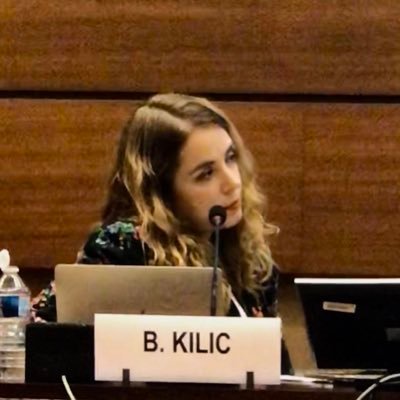Internet exchange points (IXPs) are a well-established concept. There is a substantial body of knowledge within the IXP operator and member community regarding best practices and the characteristics of local environments that are conducive to the formation and success of IXPs. However, such knowledge is not evenly distributed, and some stakeholders have expressed a need for greater awareness. Therefore, the aim of this BPF is to make existing community knowledge more widely available.
The Best Practices Forum in IXPs will explain why IXPs matter and focus on ways to create enabling environments that allow IXPs to develop and flourish.
The draft best practice outcome document that will be presented and discussed during the session is open for public comments on the IGF Review platform.
Session Agenda - Room 5
1. Welcome and Introdution
Recent large scale security incidents (Target, Home Depot, Anthem, Sony Pictures, etc.) have demonstrated that “cybersecurity” is not just a technical matter for experts, but that it should be also a priority for government leadership and top executives (across all economic sectors), as well as for individuals.
Many leaders and decision makers in businesses and in governments are realising that while the digital environment is a driver for innovation, productivity and growth, it also introduces risks that can jeopardise economic and social prosperity. For example, digital security attacks can alter production and undermine companies’ reputation; intrusions can be performed to steal trade secrets, and damage growth; personal data breaches can violate the lives of millions, facilitate identity theft and related financial fraud.
This workshop will bring representatives of governments, businesses and civil society together to explore the following questions:
Link to the Digital Security Risk Management Recommendation and Companion Document
http://oe.cd/dsrm
Names of participants
Women, as one of the fundamental stakeholders in the information society, play a very crucial role. It is important for the IGF to fully integrate gender concerns in its work. The three sectors with the IGF's defining feature of mutistakeholderism are not monolithis, unitary and consistent actors. Greater efforts have to be to ensure that women's diverse perspectives are brought to the forefront in each stakeholder group. Ultimately, a rights based approach to Internet governance is the only safeguard for women to fully enjoy the benefits of the Internet.
Access to the Internet is extremely important for women to be able to gain information which may not be available to them otherwise. This will also facilitate them to achieve full realisation of their rights, especially in case of those from the marginalised communities. The Internet can also function as the harbinger of citizenship rights, bridging their right to be informed with the duty of the governance institutions to inform.
Agenda
The moderator will give the overview of digital trade in TISA, TPP and TTIP and introduce the speakers.
Then each speaker has 5 to 7 minutes to make their case. The moderator can ask questions to the speakers before she opens the floor to questions.
At the end of the discussion, the moderator may ask the participants to summarize what they have said, adding any comments they want to include.
Moderator: Carolina Rossini
Speakers
Julia Reda, Member of the European Parliament
Burcu Kilic, Public Citizen
Claudio Ruiz, Derechos Digitales
Marcel Leonardi, Google
Usman Ahmed, PayPal
Laura DeNardis, American University
Manu Bhardwaj, U.S. Department of State

As cybersecurity becomes an increasingly important issue on the international governance agenda, there is a need for an informed debate on the relationship between governance, security, and fundamental rights and freedoms online, involving all stakeholders, and particularly with respect to policy development.
The purpose of the session is to share perspectives on the need for cybersecurity policy to be rights-respecting by design and to discuss and build on a set of recommendations from the Freedom Online Coalition (FOC) WG 1 on “Internet free and secure” designed to bring human rights into cybersecurity policy development and decision-making.Uri Rosenthal, Special Envoy for International Cyber Policies, Government of the Netherlands (welcome video)
Eileen Donahoe, Human Rights Watch, FOC WG 1
Michael Walma, Cyber Coordinator, Department of Fooreign Affairs, Government of CanadaAudrey Plonk, Director, Global Cybersecurity and Internet Governance Policy, Intel Corporation
Mishi Choudhary, Legal Director, Software Freedom Law Center
The breakouts will be fully interactive, involving the workshop participants in small focussed groups that will discuss the need for cybersecurity to be rights respecting by design and review and build on the recomendaitons from the Freedom Online Coalition Working Group. Those attending the workshop are encouraged to review the draft recommendations in workshop documentation. FOC WG 1 members will be moderating each breakout.